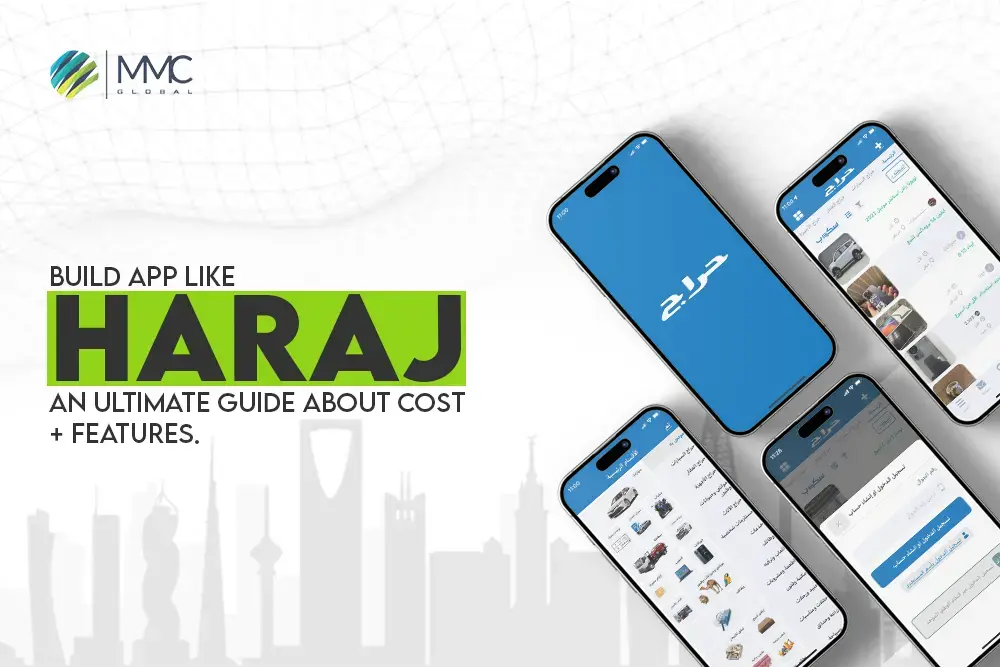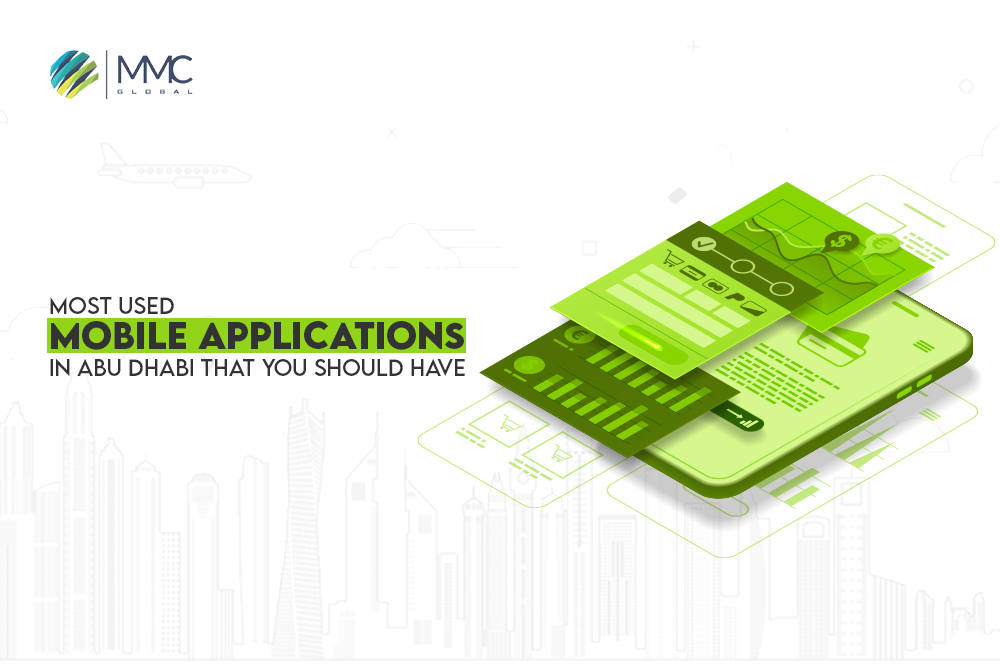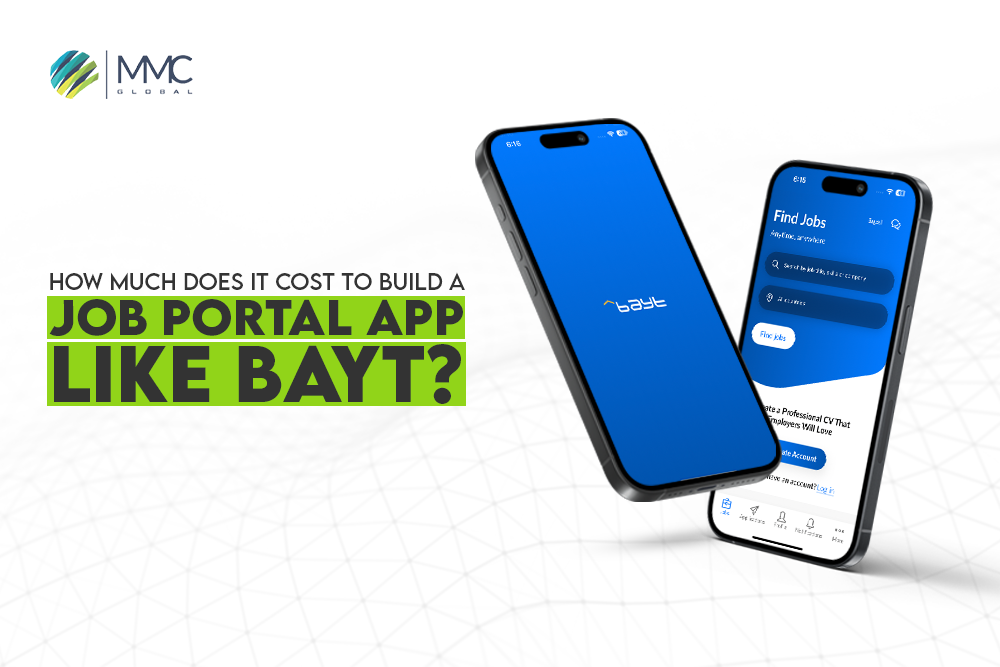All You Need to Know About Mobile App Development | Beginner Level Guide
Mobile application is one of the trendy and hot topics in the digital world. Almost every second person owns a mobile device to take maximum benefits from this invention. The rate of increasing mobile app development is not surprising at all. From grocery to call the cab, all are in fingertips of us.
What is a mobile application?
A mobile application is application software that can run on mobile devices to get quick access to your favorite app. A mobile app is basically a small unit of software but still contains features and functionalities to provide a better user experience.
For example, a food mart launches an app on the app store that helps users to deliver food to their doorstep. It must contain all products, well-versed product descriptions, price tags, add-to-cart option, easy checkouts, multiple payment gateways, etc. These elements make a single mobile app into a big mart.
No doubt, mobile app development provides ease in our lives. Other industries also moving forward to build their business apps or even start application development to provide multiple small applications. Such as a small calculator, translator, scanner, games, etc. are a few examples.
The transformation in technology makes it possible to build exceptional yet rich-featured custom mobile applications. At MMCGBL, we provide startups, SMEs, and enterprise-level application software to maximize the productivity and scalability of our clients. We have multiple options for building any app from any technology. We have just not done the project but also taken care of it by providing maintenance and support of your app.
Major Mobile App Development Technologies
From backward technologies to advanced levels, modernization helps us to build robust mobile apps with maximum functionalities. To understand the different types of technology, here you go!
Native App
Mobile application development mainly supports two types of devices i.e. iOS or Android. When we build native mobile apps, you can not expect that your app will be running on both devices. A native application is native for a specific platform or device.
When a developer starts building a Native app, the app owner has to tell whether they require an Andriod app or an iOS app. Because once the app is built, you will never use it on a vice versa platform.
Native apps are well known for their great performance and good user experience. After all, the developers who create them employ native device user interfaces. Access to a large number of APIs also helps to speed up development and expand the app’s capabilities. You can download Native applications directly into devices via app stores. That’s why they have to go through a rigorous publication procedure first.
The major downside of native apps is their cost of development. You’ll require two development teams to design, support, and manage an app for Android and iOS. As you may expect, this could result in a higher project cost.
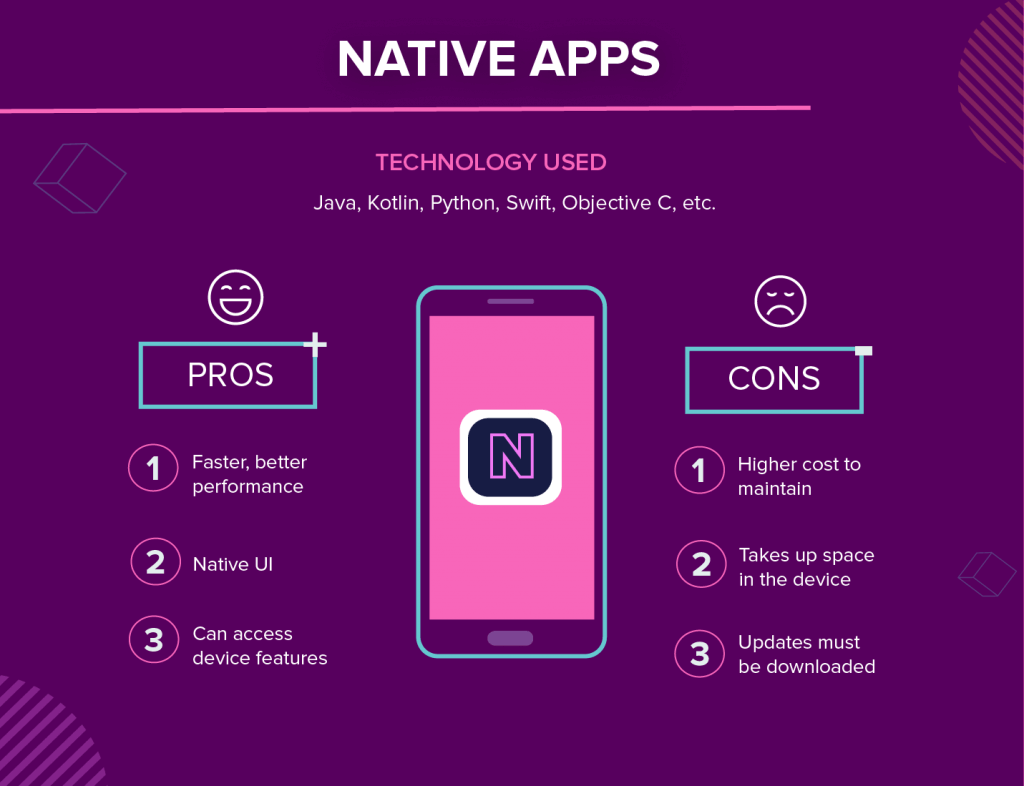
Source: CleverTap
Web Apps
Web apps are mobile application software that runs on the browser and works as a Native mobile application. They are mainly written in CSS and HTML5 or javascript. Unlike Native apps, web ap require the browser to run the app. For instance, the user receives a URL to redirect on the download or install option. On their page, they just make a bookmark. As a result, they only demand a little amount of device memory.
Users may only use the program if they have an internet connection since all of their personal datasets will be kept on the server. The biggest disadvantage of online applications is that they constantly demand a strong internet connection. Otherwise, you run the risk of providing a poor user experience.
Furthermore, except for the most in-demand features like geolocation, developers don’t have a lot of APIs to work with. The performance can disturb by the browser’s functionality as well as the network connection.
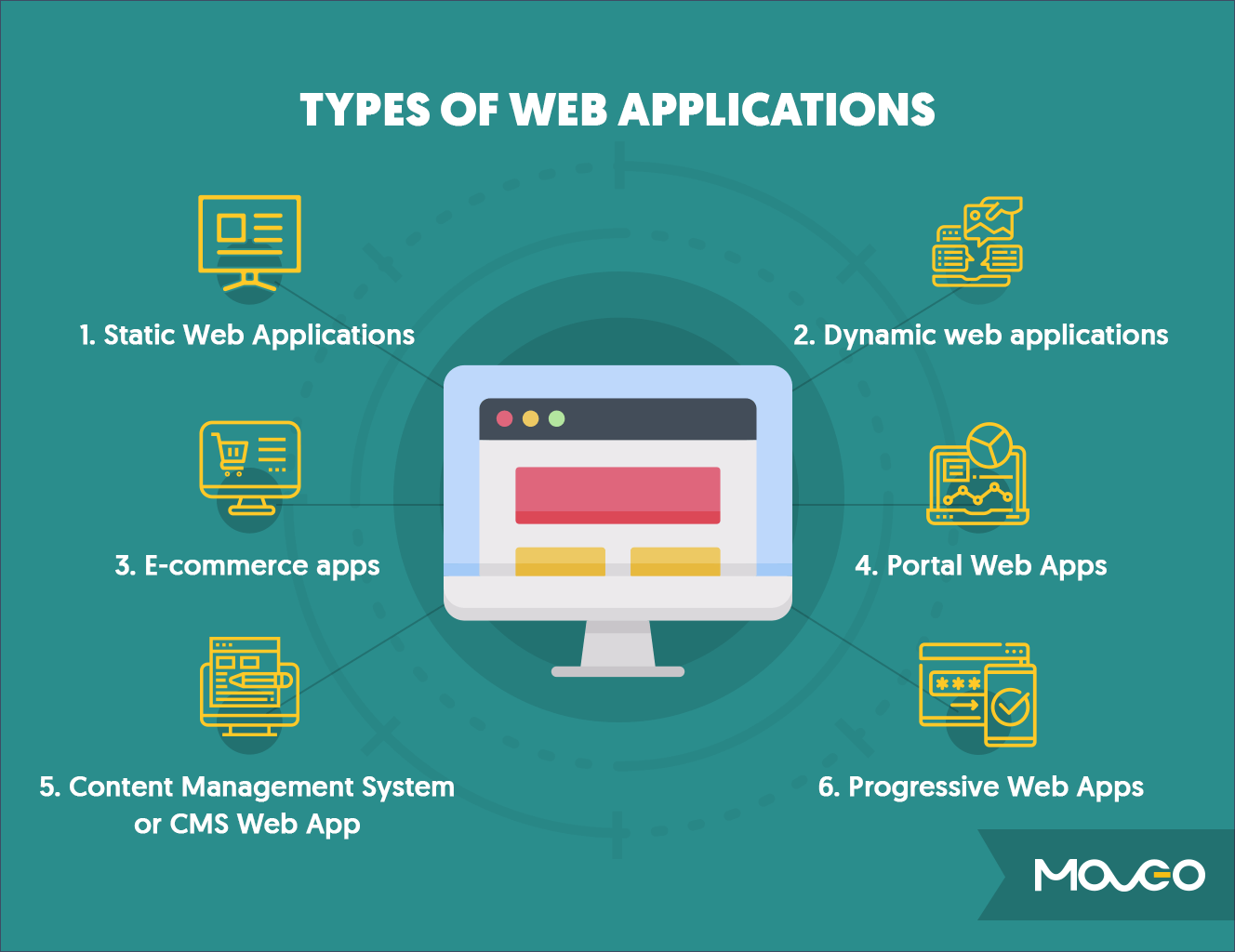
Source: Moveo apps
Hybrid Apps
Hybrid apps function as web apps but are embedded in Native-like applications. Web technologies including JavaScript, CSS, and HTML 5 are used to create these apps. The key benefit of Hybrid apps is easy to build and fast to develop.
Hybrid apps are simple and quick to create, which is a definite advantage. You get a single codebase for all platforms as well. This reduces maintenance costs and simplifies the update process. Many APIs for features like gyroscope and geolocation is also available to developers.
Hybrid applications, on the other hand, may be slow and ineffective. Also, because the program may not appear the same on two or more platforms, you may encounter certain design flaws.
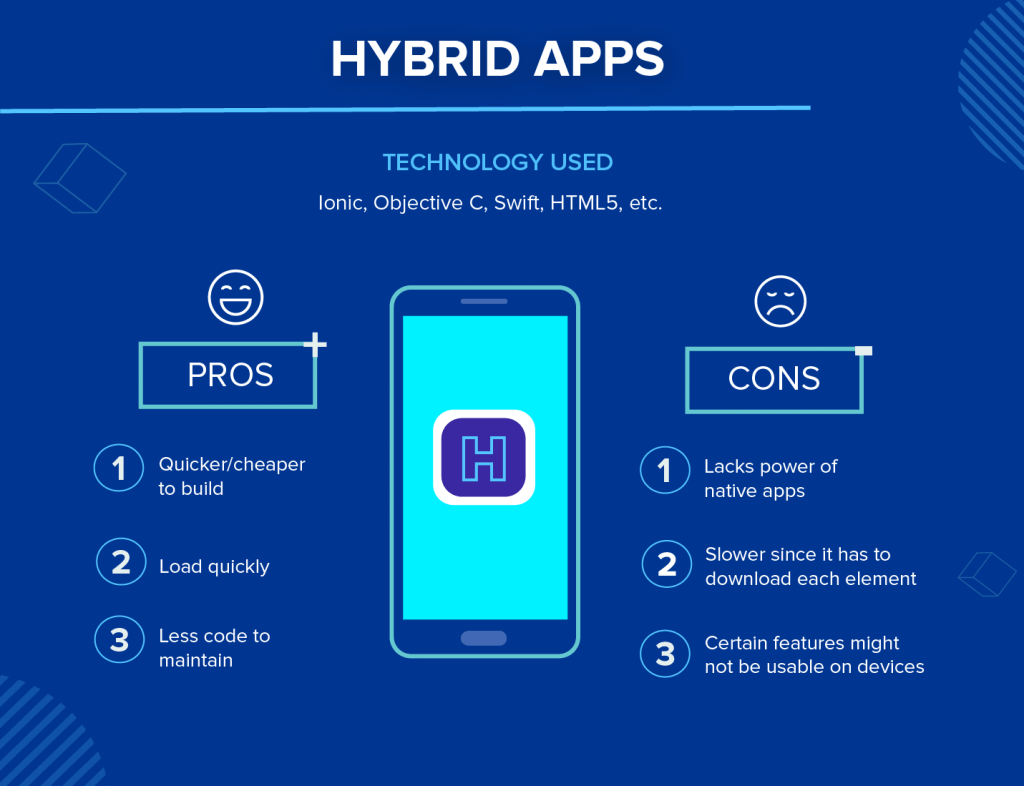
Types Of Mobile Application development
Mobile apps come in a plethora of sizes and designs. To assist you to grasp the current trends in the mobile market, below are the most frequent types of mobile apps.
Gaming apps
This is the most successful mobile app category. You’d be astonished at how many people have games installed on their phones. Because it’s such a lucrative industry, companies are devoting more time and money to developing games and mobile versions of well-known stationary games.
As shown in a recent survey, mobile games account for 33% of all app downloads. However, 74% of consumer expenditure, and 10% of all app usage time. Candy Crush Saga and PubG are two of the most popular smartphone games in the world.
Business or Productivity app
Because users are more likely to utilize their smartphones and tablets to conduct numerous difficult jobs on the move, these applications have a substantial share of the market nowadays.
Apps may help them buy tickets, send emails, and keep track of their job progress, for example. Business applications help to increase efficiency and cut costs by allowing users to execute a wide range of tasks. From ordering new office printer cartridges to hiring a new office manager, apps can do all for you.
Educational Apps
Mobile apps in this category assist users in learning new skills and information. Language learning apps like dictionaries, for example, have grown immensely trendy. Because every beginner-level student needs it.
They provide users with the freedom they want in learning. Apps for educational games are a fantastic tool for children. Many educational apps are also popular among instructors, who utilize them to better organize their teaching processes or to advance their own knowledge.
Lifestyle Apps
Shopping, fashion, virtual fitting rooms, gym, dating, and diet apps are all included in this broad category of applications. These applications are mostly concerned with various areas of one’s personal living.
M-commerce Apps
The most popular shopping applications, such as Amazon or eBay, give mobile customers the same experience as their desktop counterparts. For an excellent purchasing experience, mobile commerce applications give users easy access to items and seamless payment options.
Entertainment apps
Users may use these applications to watch videos, look for events, communicate, and watch material online. Facebook and Instagram, for example, are excellent examples of social networking applications. Furthermore, video streaming applications like Netflix and Amazon Prime Video have exploded in popularity among consumers all over the world. These applications frequently increase user engagement by informing users about new items and changes.
Utility Apps
We don’t even aware we’re employing them since they’re so blatant. In reality, utility applications have the shortest user session lengths because consumers utilize them to get things done quickly and then move on. Barcode scanners, trackers, and healthcare apps are among the most popular utility apps.
Want to build your app?
If you are not tech-savvy, you must look for a trusted leading mobile app development company. I know it’s hard to find a budget-friendly and leading company at the same time, but your research can give you the best result.
The second option is to hire an in-house team that can design, develop, and supports your app. Although, it is a costly option as you need 4-5 developers to build a single app and shell out them individually. Not only salaries, but also the workplace, hardware, software license, and other costs. If you choose this option, expect high cost and make your budget accordingly.
One more option is to hire a freelancer. But it’s not trustworthy as many freelancer platforms work remotely. You don’t know where they are and do they have extensive skills to complete your project. You must need to visit their portfolio that must be time-consuming.
Conclusion
Technology makes us a Lil bit confused but once we understand, we can transform multiple doors. Mobile app development helping us to emerge differently in the market and give tough competition to your competitors.
At MMCGBL, our team put their efforts to build apps for any industry. From artificial intelligence to virtual reality, from eCommerce apps to gaming, all we can cover confidently. Let’s start today!

